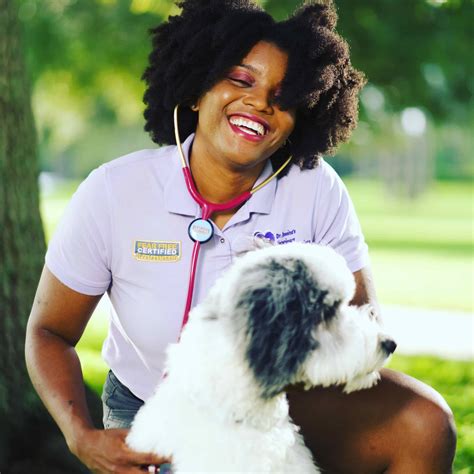Introduction: The Paradigm Shift in Veterinary Care
In the realm of animal healthcare, the traditional approach of routine vet visits is evolving into a more holistic and proactive model. As pet owners prioritize preventive care and seek personalized solutions for their beloved companions, a growing number of veterinary clinics are embracing innovative practices that divert non-urgent vet visits.

This shift is driven by several factors, including:
- Increasing pet ownership and extended lifespans: With over 90 million households in the U.S. owning pets and animal lifespans increasing, the demand for veterinary services has skyrocketed.
- Evolving pet owner expectations: Pet owners are demanding more convenient, cost-effective, and tailored care for their animals.
- Technological advancements: Telemedicine, remote monitoring, and diagnostic tools empower veterinarians to provide care beyond the clinic walls.
Benefits of Vet Visit Diversion
Diverting non-urgent vet visits offers a multitude of benefits for both pet owners and veterinarians:
Benefits for Pet Owners:
- Convenience: Virtual consultations and remote monitoring eliminate the need for in-person visits, saving time and travel.
- Cost-effectiveness: Telemedicine consultations are typically less expensive than traditional vet visits, allowing owners to budget for their pet’s healthcare.
- Personalized care: Diverted vet visits allow veterinarians to focus on addressing specific concerns and tailoring treatment plans to each pet’s needs.
- Reduced stress: For pets who experience anxiety or stress during vet visits, virtual consultations can provide a calming and more comfortable experience.
Benefits for Veterinarians:
- Increased efficiency: By diverting non-urgent cases, veterinarians can allocate their time to more complex and urgent cases.
- Improved client satisfaction: By offering convenient and personalized care, veterinarians can enhance client relationships and build trust.
- Increased revenue: By incorporating telemedicine and remote monitoring into their practice, veterinarians can expand their reach and generate additional revenue streams.
- Enhanced professional development: Diverted vet visits create opportunities for veterinarians to stay abreast of cutting-edge technologies and develop new skills.
Innovative Practices for Vet Visit Diversion
Veterinary clinics across the globe are implementing innovative practices to divert non-urgent vet visits, including:
Virtual Consultations:
Telemedicine platforms allow pet owners to connect with veterinarians remotely via video or chat. Virtual consultations are suitable for a wide range of non-urgent issues, such as:
- Post-operative follow-ups
- Medication management
- Behavioral concerns
- Minor skin conditions
Remote Monitoring:
Pet owners can use wearable devices or home-based sensors to monitor their pet’s health remotely. This data can be shared with veterinarians to identify potential health issues early and track progress during treatment.
Patient Portals:
Online patient portals provide pet owners with secure access to their pet’s medical records, vaccination history, and test results. This information can be shared with veterinarians during virtual consultations or help owners identify areas of concern.
Automated Communication:
Automated email or text message reminders can prompt pet owners to schedule appointments, refill medications, or provide feedback on their pet’s health. This proactive communication helps prevent missed appointments and ensures that pet owners stay informed.
Case Studies and Metrics
The benefits of vet visit diversion have been demonstrated through numerous case studies and research findings:
- A study published in the Journal of Veterinary Internal Medicine found that telemedicine consultations were as effective as in-person visits for managing a variety of non-urgent conditions.
- A survey by the American Veterinary Medical Association revealed that 85% of pet owners were satisfied or very satisfied with telemedicine consultations.
- Veterinarians who have implemented vet visit diversion have reported significant increases in client satisfaction, revenue, and professional fulfillment.
Future Outlook: The Evolving Role of Veterinarians
As the veterinary landscape continues to evolve, veterinarians will need to embrace new technologies and innovative practices to meet the changing needs of pet owners. Diverted vet visits will play a pivotal role in shaping the future of veterinary care by:
- Redefining the veterinarian-client relationship: Virtual consultations and remote monitoring create opportunities for veterinarians to build stronger relationships with pet owners by providing personalized and convenient care.
- Empowering pet owners: Diverted vet visits empower pet owners to take an active role in their pet’s health management by providing access to information and resources.
- Creating new revenue streams: Telemedicine and remote monitoring can create new revenue streams for veterinary clinics by expanding the range of services offered.
- Fostering professional development: Diverted vet visits provide veterinarians with opportunities to learn new skills and stay abreast of technological advancements.
Conclusion: Embracing the Benefits of Vet Visit Diversion
Vet visit diversion is not merely a trend but a transformative shift in the way veterinary care is delivered. By embracing innovative practices and leveraging technology, veterinarians can enhance the quality of care for pets, improve client satisfaction, increase revenue, and advance their professional practice. As the pet-owning population continues to grow and pet owners seek more personalized and convenient care, diverted vet visits will play an increasingly important role in shaping the future of veterinary medicine.
